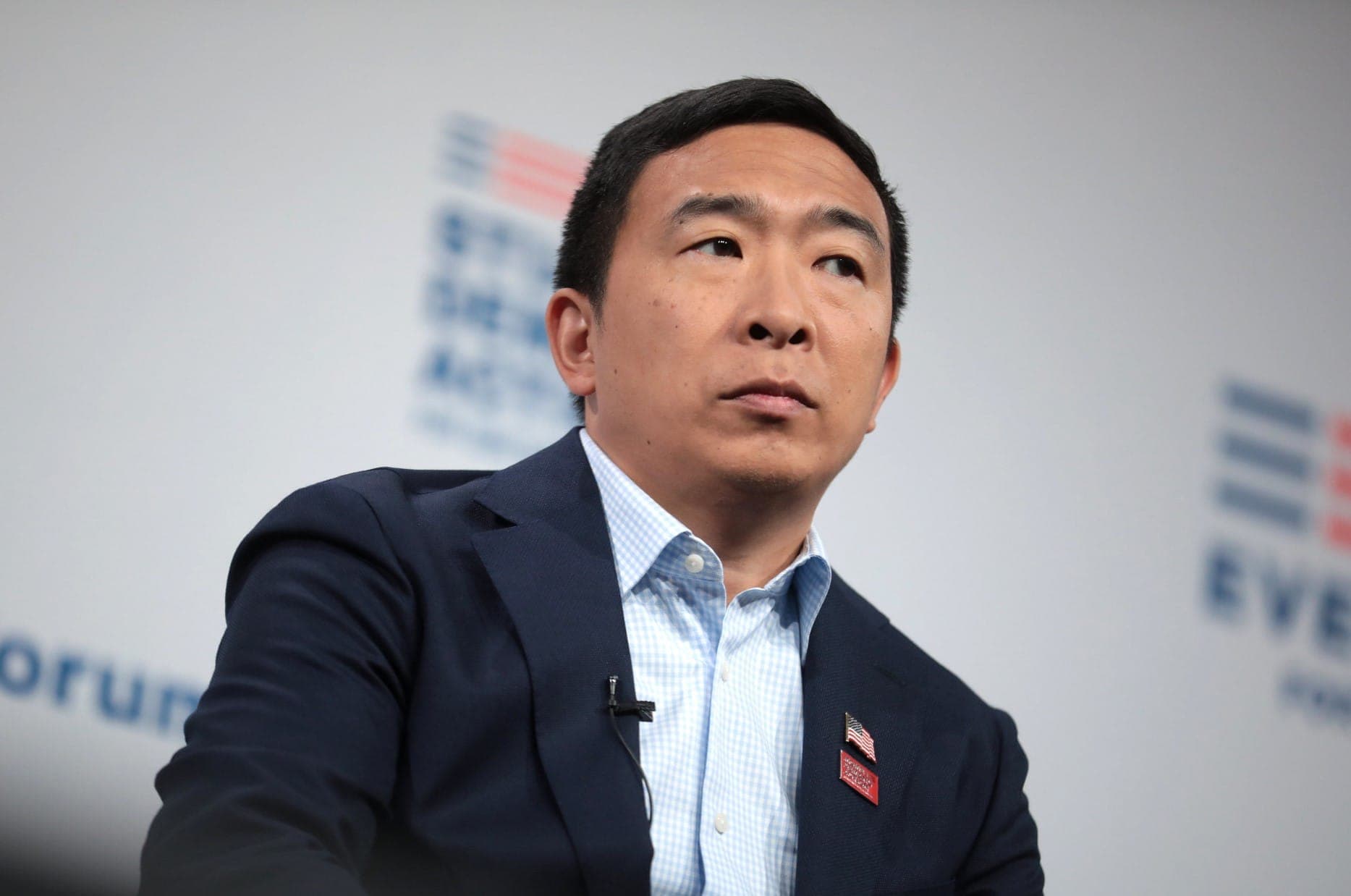How Maine Started a Voter Revolution, And Is Now Going Backwards

Photo Credit: Clay Banks on Unsplash
Election reformers have looked to Maine for several years now as a pioneer in adopting policy solutions that put voters first in elections. Maine voters have taken it upon themselves to enact better elections – and have won major victories.
However, a recent decision by state lawmakers took a major step backwards in the progress the state has made.
Democratic Maine Governor Janet Mills announced Monday that the state could join the National Popular Vote Interstate Compact (NPVIC) – a multi-state agreement to award all members’ electoral votes to the winner of the national popular vote.
Even if member states voted a different way.
The proposal was approved by state lawmakers and Mills announced she would let it become law without her signature. It moved to her desk after passing the State House by a single vote. The House is where a similar bill died in 2019.
Ultimately, the vote fell along party lines. Democrats supported the NPVIC proposal. Republicans opposed it.
“Some argue that this measure would dilute the influence of rural voters, although this measure ultimately would provide that each vote carries equal weight, whether the voter is a rural, urban or suburban resident, and thus create greater equity among voters," Mills said in a statement.
Proponents of the NPVIC point to two instances in recent history where a presidential candidate won a general election despite losing the national popular vote – George W. Bush in 2000 and Donald Trump in 2016.
Opponents of the NPVIC and moving to a national popular vote system argue that votes would not carry equal weight, because densely populated urban areas would get far more attention from presidential campaigns than rural areas – ignoring voters that already struggle to be heard.
So, while every vote would be counted, the power and influence of that vote would not be the same. This, in turn, would shape policy priorities for presidential candidates in a way that would exacerbate the rural-urban divide.
Proponents of keeping the Electoral College argue that it is a way to protect the minority from the will of the majority and ensure every part of the country is involved in presidential elections.
"I see merit to arguments on both sides. I am also aware that enacting this measure is not irreversible and that it will not take effect until a number of other states with at least 61 cumulative electoral votes also approve the measure,” said Mills.
Maine is the seventeenth state to adopt the NPVIC. These states have a total electoral count of 209. The compact has no legal force until there are enough states to equal 270 electoral votes – the magic number needed to win a presidential election.
The Impact the NPVIC Has on How States Vote
The NPVIC is a proposal that allows advocates of moving to a national popular vote system (NPV) to get to their goal without amending the US Constitution – which entrusts the election of the President of the United States to a body of electors.
The number of electors each state is guaranteed is equal to their number of US House and Senate seats. For example, since Maine has two congressional districts, it gets 4 electoral votes (2 House districts + 2 US Senate seats).
Each state, however, can determine how those electors are awarded – and there is nothing in the constitution that says they have to be pledged to the state’s popular vote.
For decades, the states were divided on how they awarded electors. Some did a district-by-district model, others awarded all of their electors based on a state’s popular vote, and for a time many allowed their state legislatures to decide where their votes went.
The legislative model gradually fell out of favor with every state while more and more states moved to a “winner-takes-all” model to compete for influence in presidential elections.
READ MORE: The Electoral College Reform the Nation Needs is Not What Either Party Wants
While some argue that the “winner-takes-all” model was the intention of the Framers of the US Constitution – it wasn’t. John Madison and Alexander Hamilton made it clear in the Federalist Papers that the intention was that electors would be chosen district-by-district.
Maine, which followed the national trend of moving to “winner-takes-all” for a time, switched to a district-by-district model known today as the Congressional District Method in 1972. There are only two states that use this method: Nebraska and Maine.
Put simply, if Candidate A wins the popular vote in Maine’s 1st Congressional District and Candidate B wins the popular vote in Maine’s 2nd Congressional District, each of them gets one electoral vote. Then, the winner of the state popular vote gets 2 additional electoral votes.
This happened in 2016 when Donald Trump took Maine’s 2nd congressional district and got 1 electoral vote to Hillary Clinton’s 3. The vote total was nearly evenly divided between the two major party candidates, with Clinton garnering a little over 22,000 more votes statewide.
The votes in Maine’s 2nd Congressional District had an impact on the electoral outcome – which would not be the case under a winner-takes-all system. In California, for example, Trump garnered nearly 4.5 million votes in 2016, but received 0 electoral votes.
Trump voters in California had zero impact on the electoral outcome in that state. The same can be said for Clinton voters in Texas, where she got 3.9 million votes, but Trump took all of the state’s 36 electoral votes.
If the NPVIC goes into effect, it may not matter how Mainers vote.
Under the agreement, Candidate A could win the popular vote in Maine, but Candidate B could win the national popular vote. Maine’s 4 electoral votes would go to Candidate B, even though it does not represent how Maine citizens voted.
It would leave many voters scratching their heads over what their vote really meant in that election – when the people who were supposed to represent their interests in the Electoral College ended up representing voters outside the state.
In Maine, It’s Two Steps Forward – One Step Back
Maine has made great strides over the years in changing its electoral system to empower the voices of citizens, from opening the taxpayer-funded electoral process to independent voters to giving voters more choice on the general election ballot.
In January 2024, Maine transitioned to a semi-open partisan primary system for its elections. Under this system, voters registered “unenrolled” (independent) can choose between a Republican and Democratic primary ballot.
They have access to the most important stage of the publicly-funded and administered electoral process -- and can vote for the candidate they most want to see on the general election ballot.
Maine was the first state to adopt ranked choice voting (RCV) in 2016, which gives voters the option to rank candidates on the ballot in order of preference. If no candidate gets a majority of first-choice selections, the last place candidate is eliminated and their voters’ next choice is applied to the results.
The process continues until a single candidate has a majority of the vote.
Advocates of RCV say it is beneficial because it gives voters the confidence to vote for the candidate they truly want while still having an impact on the outcome of the race – especially if they know their candidate is not likely to win.
And, winners are chosen by a majority.
Research shows that voter confidence tends to increase under RCV elections. Voters are more confident in the power and influence of their vote when they can rank their options – and the number of meaningful votes increases by a substantial number.
It wasn’t an easy road for RCV. Voters had to take on their own government to enact it. A year after they approved its use, state lawmakers voted on a bill that effectively set RCV up for repeal.
Voters then went to the polls again in 2018 to preserve RCV in state elections.
In the cases of primary reform and ranked choice voting, the end goal was to guarantee equal voting rights for Maine citizens, empower their voice in elections, give them more choice, and ensure their votes were meaningful.
The question Mainers should ask now is: Does the NPVIC do the same? Does it make votes more meaningful? Does it strengthen the role state voters have in electoral outcomes the same way open primaries and ranked choice voting do?
Can that even be said of an electoral model that could potentially disregard how Mainers vote completely?
Maine lawmakers voted to move from a system where each congressional district can influence where an electoral vote goes – thus the districts play a role in electoral outcomes – to a system where the voices of Mainers could be drowned out by areas with far greater population sizes.
There is a reason why the vote on the NPVIC fell on party lines in the Maine Legislature. The entire conversation is about who benefits between the Republican and Democratic Parties -- not how are state voters empowered by this proposal.
And as a result, the state took a regressive step away from being a model for better elections.
 Shawn Griffiths
Shawn Griffiths







